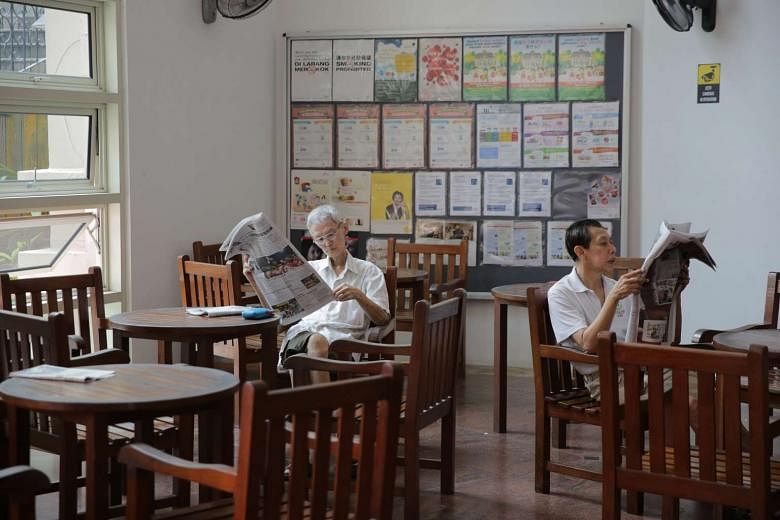Call it the silver effect.
Investors can generate strong returns at relatively low risk by investing in companies that cater to the lifestyle and healthcare needs of the burgeoning elderly population, said experts at a panel.
The elderly population also owns the "vast majority" of the world's wealth, it was also noted at the panel, which consisted of two investment executives and a consultant.
"Companies will start making it very well known how much percentage within the sales and profits comes from the above-50 or 60 segment... because everyone will get to the point where they understand this is actually the safe growth, permanent growth area (for a company)," said Mr Vafa Ahmadi, head of thematic equities management at CPR Asset Management, an independent, wholly owned subsidiary of Amundi.
Asset manager Amundi, which organised the panel, promoted three funds that invest in consumption trends driven by ageing after the panel discussion.
Elderly Singaporeans will continue to be active consumers, veteran advertising consultant Dave McCaughan said.
A 60-year-old is likely to maintain the same level of general health to around his mid-70s, and likely to live till around 92. Free from the burdens of caring for children, he would seek out ways to enjoy life.
These may include taking up pastimes put aside for work in earlier years, and doting on their grandchildren, Mr McCaughan said.
He cited how electric guitar sales grew the fastest among about 80 product categories in Japan in 2007. Then, the older of Japan's first generation of baby boomers retired at age 60, he said.
The sales surged because "thousands of men who were retiring decided to reform the college bands that they'd given up 35 years before", he said. "The interest in reliving their youth and maintained interest in their youth come back to the fore (upon retirement)."
Toy sales also grow significantly in countries with ageing populations, he noted.
"(You have) a surplus of grandparents versus every child, and what do grandparents do? They spoil their grandchildren," he said.
Amundi also identified leisure, automobiles, retirement planning and well-being as sectors which would benefit from increased elderly spending as populations age.
As populations age, spending on products and services that address ageing ailments will also rise, the panel said.
Mr Ahmadi said he observed almost double-digit growth every quarter in some areas of the elderly care sector in France, where demand for such services greatly exceeded supply.
Spending directed at research into Alzheimer's disease (a type of dementia) will also increase, he said. Even a "broke" country like France in terms of public finance has dedicated €800 million (S$1.2 billion) to a three-year research programme against Alzheimer's, he noted.
Training programmes on how to handle Alzheimer's patients may also be more highly sought after, Mr McCaughan added.
Adult diaper sales in regional countries whose populations are ageing have been growing at a significant rate, Mr Reginald Tan, director of equities at Amundi Singapore, said.
In addition, the elderly require pharmaceutical and healthcare products, and safety and protection services, Amundi said.
Mr Tan suggested investing in Raffles Medical and Parkway Life Reit as a means of leveraging on this demographic trend.
He said that in Asia, travel agencies, airlines and casino companies could benefit from this trend as well.

